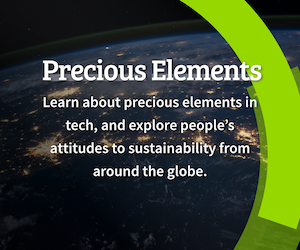No time left to waste for government - we need a circular economy for materials now
By Izzi Monk, Policy Advisor, Environment for the Royal Society of Chemistry
The UN Global Resources Outlook 2024, published today, paints a stark picture of the impact of the global extraction of raw materials on the climate, environment and human health.
The report highlights how our unsustainable resource use is driving the triple planetary crisis of climate change, biodiversity loss and waste and pollution. Globally, resource use has accelerated, and is projected to rise 60% from 2020 levels by 2060 unless urgent action is taken to address this.
Moving away from our current linear economy where resources are extracted with significant environmental and health impacts, used in products and services, before being thrown away as waste, is absolutely vital.
The Royal Society of Chemistry is calling on government to urgently put in place the enabling policies needed to move to a circular economy of materials.
In a circular economy, resource efficiency is maximised, materials are kept circulating at as high a value as possible and waste and pollution are minimised. This will help society meet our material demands without deepening the triple planetary crisis, ensuring we have a habitable world for future generations.
Not only does the primary extraction and processing of raw materials have environmental and health impacts, there is growing concern about the supply security of some of the materials, such as lithium and indium. These resources are crucial for green technologies such as wind turbines and EV batteries, as well as in a range of other sectors including electronics and healthcare.
Supply security concerns have led to some of these materials being classified as 'critical minerals' in the UK. The vital nature of these materials is something the Royal Society of Chemistry has long been highlighting through our Precious Elements campaign.
Establishing a circular economy will also help to diversify supply chains by providing alternative secondary sources of raw materials, as well as expanding the lifecycle of a product through increased reuse and repair.
The transition to a circular economy will require coherent, harmonised long-term policies, alongside those that reduce the social and environmental impacts of primary extraction.
Our recommendations to the government include the need for investment in recycling infrastructure, mapping and tracking of material streams, and incentivising product design for efficient and simple deconstruction, reuse and repair.
The chemical sciences have a crucial role to play in a circular economy - from more environmentally friendly processing and developing alternative battery chemistries, all the way through to the recycling technologies that are used to recover valuable and critical materials at the end of the life of a product.
However, strong action is needed from the government at this juncture to enable a circular economy, and there is no time to waste.
Follow the links below to read more detail about our policy work on critical minerals and a circular economy of materials:
Contact us
- Email:
- The Policy and Evidence Team
Press office
- Tel:
- +44 (0) 20 7440 3351
- Email:
- Send us an email

